Product Detail
Product NamePTPN14 Antibody
Clone No.H7-B3
Host SpeciesMouse
ClonalityMonoclonal
PurificationProA affinity purified
ApplicationsWB, ICC, IHC, FC
Species ReactivityHu
Immunogen DescRecombinant protein
ConjugateUnconjugated
Other NamesCytoskeletal associated protein tyrosine phosphatase antibody
MGC126803 antibody
PEZ antibody
Phosphatase with ezrin domain antibody
Protein tyrosine phosphatase non receptor type 14 antibody
Protein tyrosine phosphatase pez antibody
Protein-tyrosine phosphatase pez antibody
PTN14_HUMAN antibody
PTP 36 antibody
PTP36 antibody
PTPD 2 antibody
PTPN 14 antibody
PTPN14 antibody
Tyrosine protein phosphatase non receptor type 14 antibody
Tyrosine-protein phosphatase non-receptor type 14 antibody
Accession NoSwiss-Prot#:Q15678
Uniprot
Q15678
Gene ID
5784;
Calculated MW135 kDa
Formulation1*TBS (pH7.4), 1%BSA, 40%Glycerol. Preservative: 0.05% Sodium Azide.
StorageStore at -20˚C
Application Details
WB: 1:500-1:2,000
IHC: 1:50-1:200
ICC: 1:50-1:200
FC: 1:50-1:100
Western blot analysis of PTPN14 on human PTPN14 ecombinant protein using anti-PTPN14 antibody at 1/1,000 dilution.
Western blot analysis of PTPN14 on HEK293 (1) and PTPN14-hIgGFc transfected HEK293 (2) cell lysate using anti-PTPN14 antibody at 1/1,000 dilution.
Immunohistochemical analysis of paraffin-embedded human breast cancer tissue using anti-PTPN14 antibody. Counter stained with hematoxylin.
Immunohistochemical analysis of paraffin-embedded human rectum cancer tissue using anti-PTPN14 antibody. Counter stained with hematoxylin.
ICC staining PTPN14 (green) and Actin filaments (red) in Hela cells. The nuclear counter stain is DAPI (blue). Cells were fixed in paraformaldehyde, permeabilised with 0.25% Triton X100/PBS.
Flow cytometric analysis of Hela cells with PTPN14 antibody at 1/100 dilution (green) compared with an unlabelled control (cells without incubation with primary antibody; red).
Protein tyrosine phosphatase which may play a role in the regulation of lymphangiogenesis, cell-cell adhesion, cell-matrix adhesion, cell migration, cell growth and also regulates TGF-beta gene expression, thereby modulating epithelial-mesenchymal transition. Mediates beta-catenin dephosphorylation at adhesion junctions. Acts as a negative regulator of the oncogenic property of YAP, a downstream target of the hippo pathway, in a cell density-dependent manner. May function as a tumor suppressor.
If you have published an article using product 48412, please notify us so that we can cite your literature.



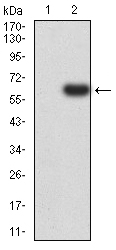
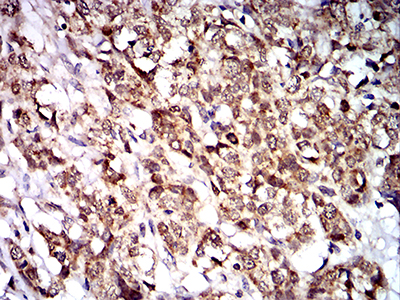
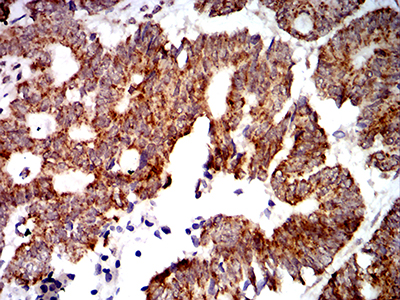
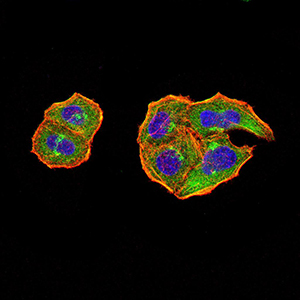
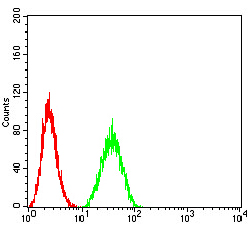
 Yes
Yes



